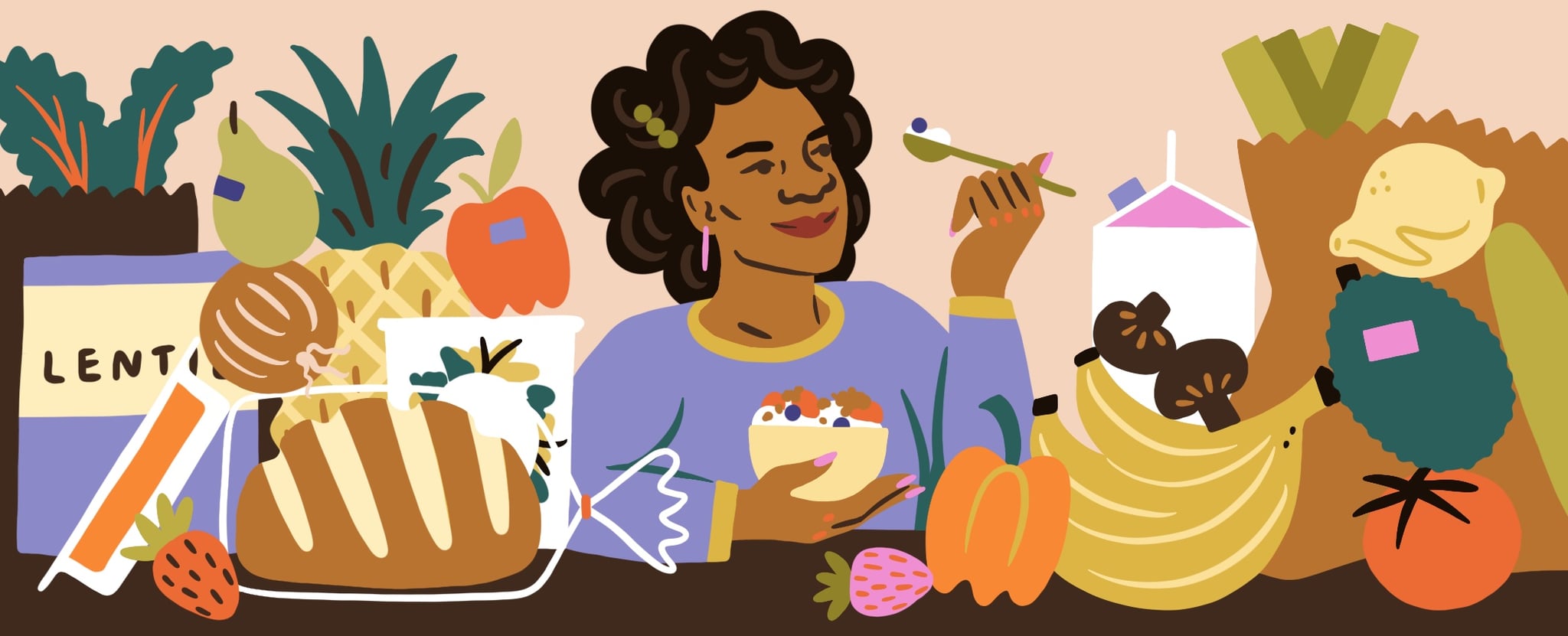
A Registered Dietitian Reviews Healthy Food Trends
How to Tell If That Trendy Food Is Worth the Hype, According to a Registered Dietitian

Much of the advice we associate with living a healthy lifestyle hasn't changed in decades: drink plenty of water; eat a variety of fruits and vegetables; get physical activity every single day. You know the drill.
What has changed is the sheer amount of trendy foods marketed to consumers interested in healthy living. It seems that there's always a hot new ingredient, recipe, or product out there — but not all of them are worth your time, according to Vanessa Rissetto, MS, RD, CDN, of Culina Health. To help you demystify the ever-changing world of health food, we asked Rissetto for her take on four of the latest trends — plus her advice for building a more balanced lifestyle.
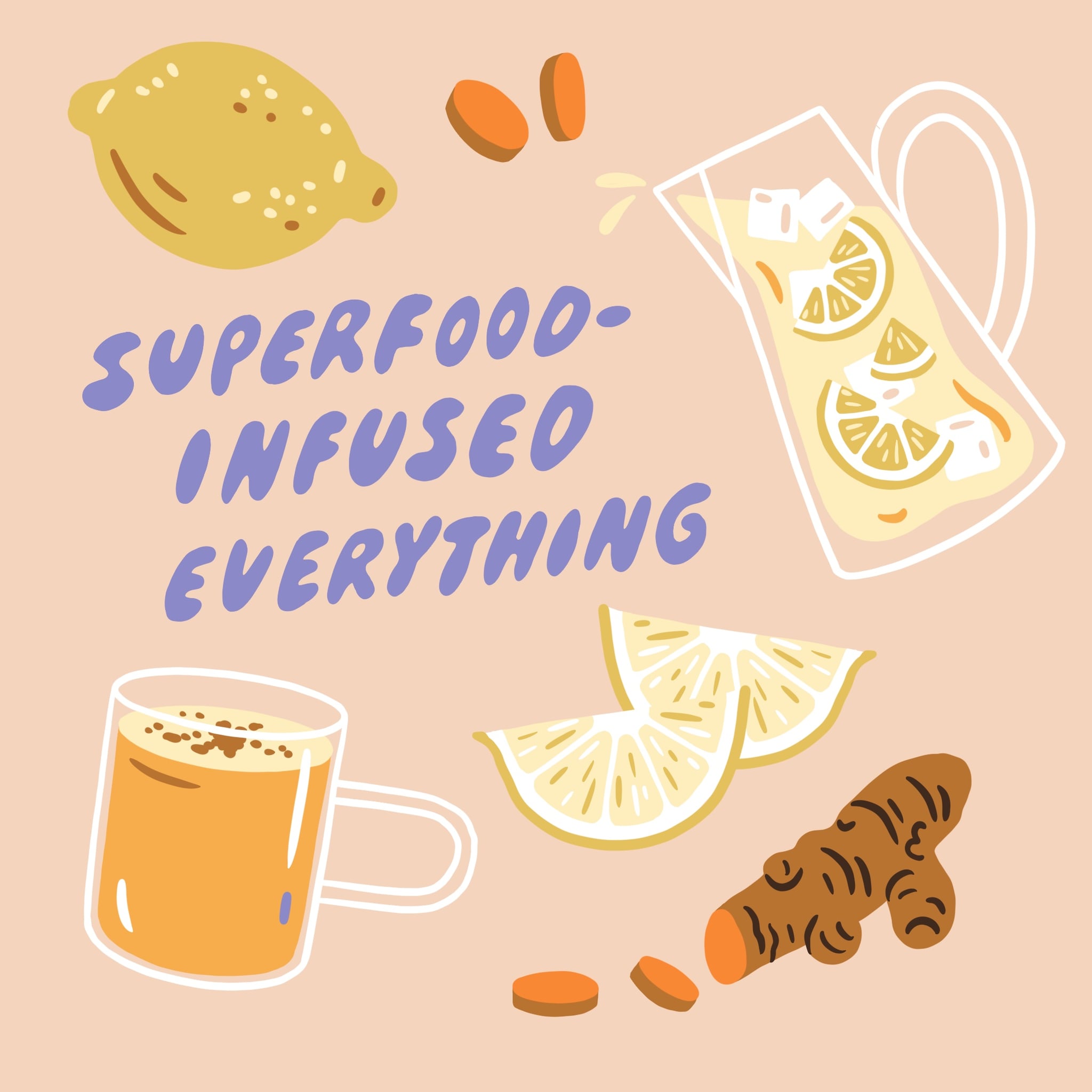
It seems like there's a superfood-infused version of just about any beverage you can think of. From charcoal lemonade to turmeric lattes to probiotic sparkling water, there's no shortage of infused drinks to choose from.
Don't put too much stock in these superfoods, Rissetto says. Though many of these trendy ingredients do have real health benefits, you'd have to eat them in much larger quantities to see any identifiable result. Meaning one turmeric latte isn't going to change your life. Most products labeled as superfoods will also come with a higher price tag, Rissetto says, but that doesn't mean you have to spend $40 on a supplement just to be healthy. "Listen, there's nothing wrong with eating mushrooms and berries," she explains. "But is it going to cure all ails? No."
Instead of filling your fridge with adaptogenic beverages, Rissetto recommends focusing on eating a balanced, varied diet full of fruits and vegetables. If you want to try a reishi mushroom iced tea, go for it. "It's good to be curious. It's good to ask questions," she says.
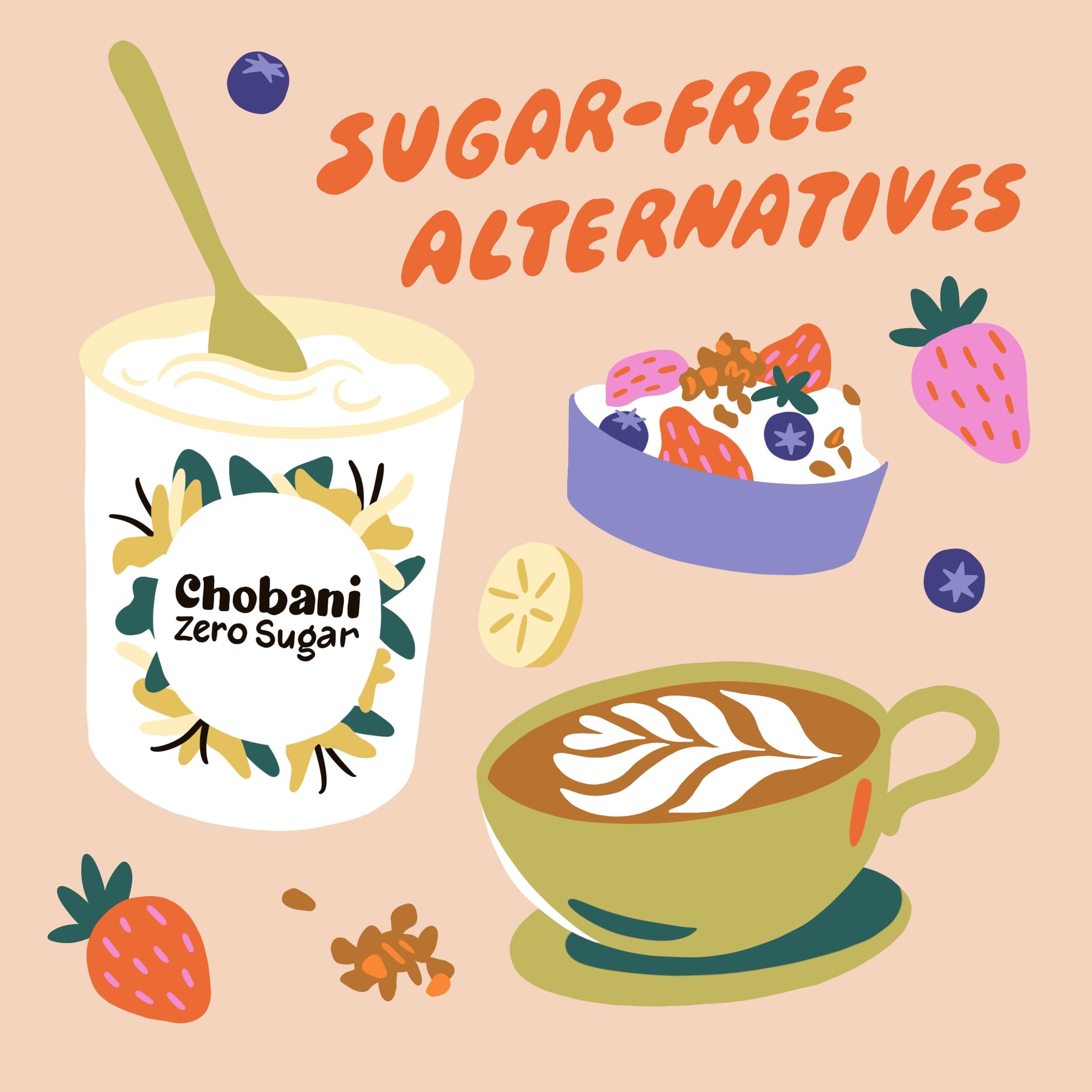
Cutting back on sugar consumption is a widely accepted part of healthy living — but what about replacing that sugar with sugar-free sweeteners? Rissetto notes that many people trying to lose weight automatically reach for these alternatives, but filling your diet with artificial sweeteners isn't much better than eating sugary foods.
Rissetto says she often sees clients dumping artificial sweeteners in their coffee in an attempt to cut out sugar, then binging on cookies or candy later in the day. "You don't actually do yourself any favors, because you end up having that craving for sweet things" that was never fulfilled, she says. Instead, avoid artificially sweetened foods that lack other nutritional benefits — things like sugar-free sodas, candies, or desserts.
When you do have a sweet tooth, Rissetto recommends reaching for foods with natural sweetness and nutritional value, like yogurt paired with berries and granola. "Yogurt in and of itself is high-protein," she says. Chobani® with Zero Sugar* has zero sugar and zero artificial sweeteners, and is also an excellent source of calcium to support bone health.
*Not a low-calorie food
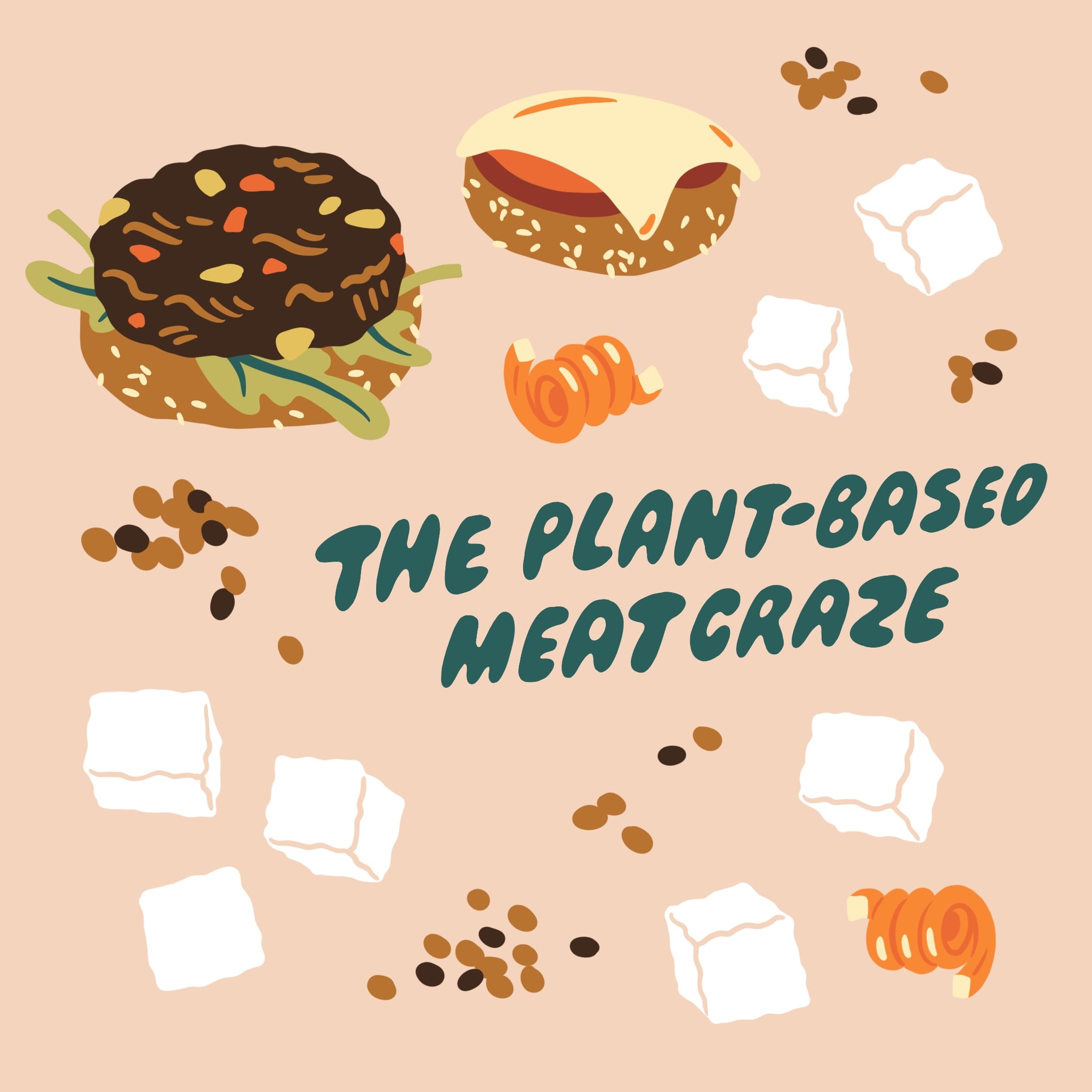
Plant-based meat substitutes have also been popping up everywhere from grocery stores to health-conscious restaurants — think soy chorizo or veggie burgers that look almost indistinguishable from beef.
Rissetto says while she understands why they're attractive to meat-lovers who want to eat more sustainably, she cautions her clients to be careful relying on products that are so heavily processed. "If you really sit and think about it, cashews should not be cheese," she jokes. "If you're trying to get a cashew to taste like mozzarella cheese, how much processing is happening with that?" Processed foods often include ingredients like oils, sodium, soy, and artificial flavoring, which can be detrimental to your health in the long term.
Rather than eating vegan bacon for breakfast, faux chicken nuggets for lunch, and an artificial burger for dinner, Rissetto recommends simply replacing meat with plant-based whole foods like beans, legumes, and vegetables. "You can have oatmeal for breakfast with chia seeds and berries. You could take some chickpeas, put them on a skillet with some seasoning on them, and then have a salad," she says.
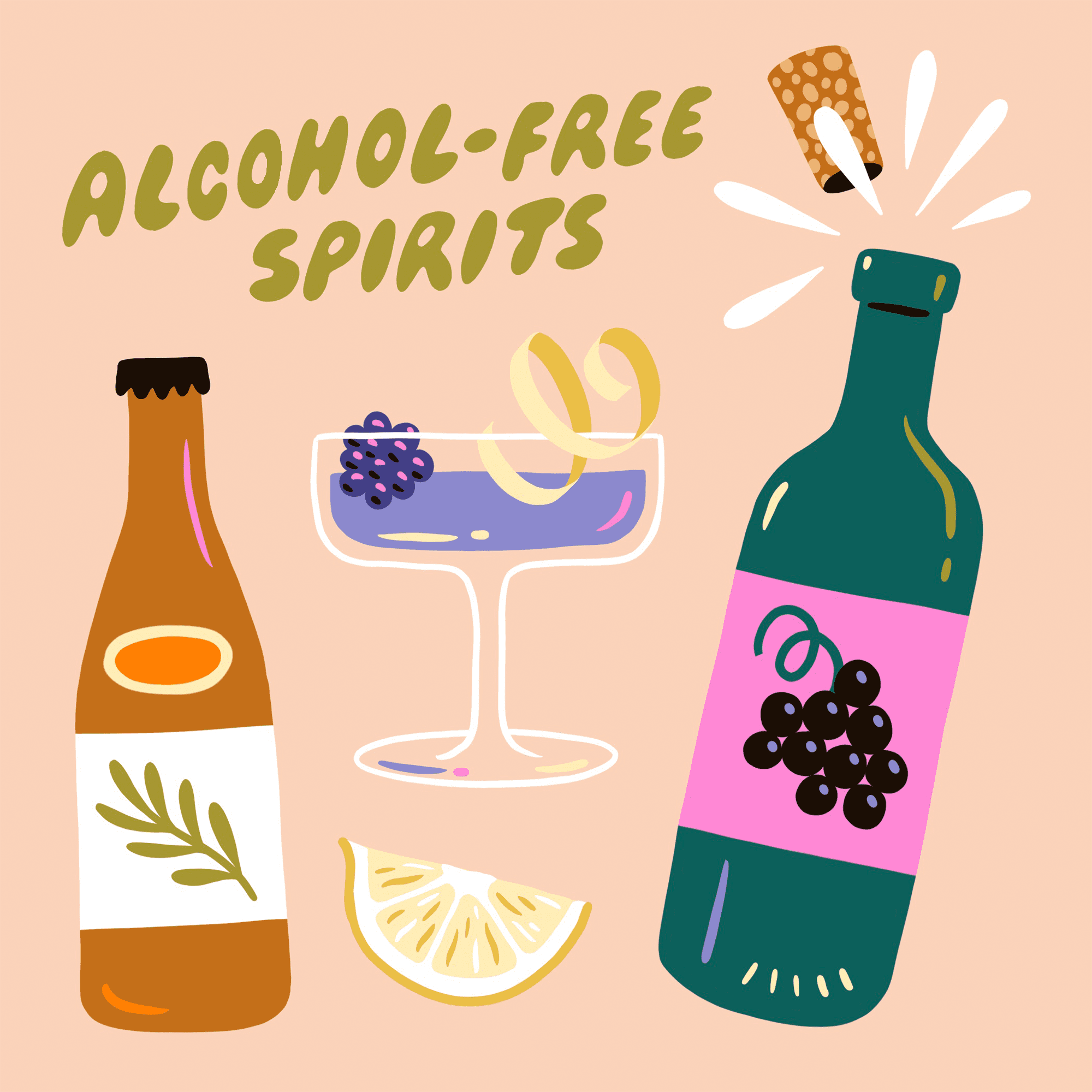
As more and more consumers look to limit their alcohol consumption, the market for low- or no-alcohol alternatives has exploded. Booze-free beer, wine, spirits, and seltzer alternatives abound.
It is a promising sign that more people are shifting away from drinking, Rissetto says. "We have so much research out there that directly links poor health outcomes to chronic consumption of alcohol," she says. "It's really cool that people are sober-curious and they're trying different things."
The downside? Many of the alcohol-free products on the market use sugar or artificial sweeteners to re-create a boozy flavor — or replace alcohol with caffeine or more buzzy superfoods. Rissetto recommends making your own mocktails instead. You can easily mix up something satisfying with just sparkling water and juice — garnish your drink with herbs or a slice of lemon if you're feeling extra fancy.
Overall, Rissetto warns against jumping on the latest trend just because everyone else is. "You have to honor yourself. Don't do the things that other people are doing because you think that's the only way to be healthy," she says. For example, Rissetto hates the taste of sweet potatoes, so she'll probably never get on board with sweet potato fries — and that's OK.
To build a healthy lifestyle you can sustain in the long term, Rissetto recommends making small changes that will work for you. "Let's say you drink juice every single day. Why don't you just start for the month — or maybe even just for the week — to drink juice every other day? And then if you're successful for the month or the week, move on to every two days," she says. Succeeding at one small goal motivates you to keep going. "It shouldn't be a chore," she says. "If it's a chore, you're not going to do it long-term."
Illustrations: Monique Aimee